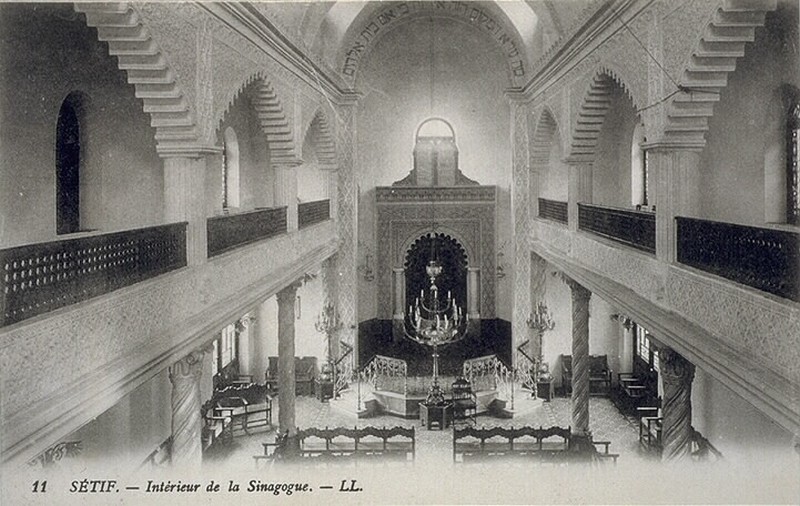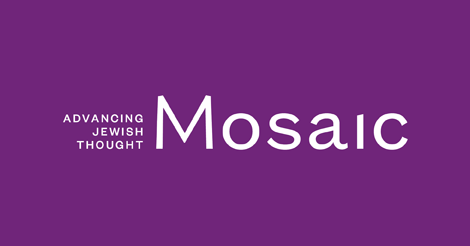I am pretty sure the Jews of Algeria worked with the French against the people of Algeria. This would cause them not to be liked. They were fighting against each other. However France offered them citizenship. France indeed offered all of them citizenship. That is the Christians and Muslims as well. I think Algerians are the main source of Muslim and Jew refugees en mass in France. France seems to have issues between its Jewish and Muslim communities. Some people think this is the reason.
Your book may give reason for the Jews to hate everyone else and join the French and their must have been a reason. Impossible to know without reading it. Unfortunately what people remember is the Jews of Algeria fighting with the French against them.
First of all, there is no Arabs of the Jewish Faith, when referring to Jews who lived in Arab conquered lands. Those are Jews from the Land of Israel descendants of the Hebrews/Israelites.
There are, of course, some Arabs who have converted to Judaism during those centuries, but they are very few. There are many Arabs, since the Mandate for Palestine, who have also converted to Judaism.
Alexa, I have my doubts that you have read the article you answered to. Here is a part of it. It would be nice if one would bother to learn the history of the country, or region, towards Jews after 1400 years of Islam :
Missing from the context of this discussion is any in-depth examination of how Jews were treated before the colonial era, when Muslim sharialaw was in place under Ottoman rule: The Jews were dhimmis, institutionally inferior to Muslims, with few legal rights.
Schreier acknowledges that Jews were not immune from humiliations, additional taxes and sumptuary laws during this period. If they enjoyed important posts, it was not as decision-makers. They could only execute orders. Jews could be assassinated by rivals and targeted by waves of mob violence.
However, Schrier claims, “a literal interpretation of dhimmi status should not stand in for social history,” which “suggests that Jews were relatively secure and an integral component of late Ottoman and early colonial Algerian society.” He points to the powerful Jewish mercantile elite, which traded in cereal, crops, wool and livestock—though he does not say that several of these successful merchants enjoyed the protection of foreign nationality. He also produces examples of semi-nomadic Jews “who were armed and dressed like Arabs,” particularly in southern Algeria.
Other scholars, often
born in Arab countries, have argued that colonial emancipation was a liberation from dhimmi status. As far as most Jews were concerned, colonialism has much to recommend it. It gave Jews greater security, equality and legal rights for the first time in centuries. It introduced basic standards of health care and hygiene and put a stop to corporal punishment in schools. It gave Jews a Western education that permitted them to thrive in the modern world.
To downplay dhimmi status is to ignore the substantial corpus of testimony from European travelers describing the exactions and abuses suffered by Jews in the pre-colonial era. Schreier dismisses these reports as “exaggerated.” He holds that they should be treated with skepticism because they were written to serve a colonial agenda that promoted emancipation and assimilation to French values. Schreier’s suspicions extend to scholars like the late respected Algerian-born French professor Richard Ayoun, whose work Schreier calls “an example of scholarship echoing the colonial model of emancipation from an Oriental state of abasement.”
In fact, it was primarily to equip the Jewish communities of Muslim countries with the wherewithal to fight for their rights as emancipated citizens that a group of French Jews set up the Alliance Israelite Universelle in 1860. This institution was not just a Jewish version of the French “civilizing mission.” It was a response to the very real abasement observed and chronicled in the pre-colonial era, ranging from blood libels and forced conversions to beatings and synagogue burnings. The book
Exile in the Maghreb by David Littman and Paul Fenton provides ample evidence of this—not just from European, but also Jewish and Muslim sources.
Yet the Alliance’s efforts to combat Muslim anti-Semitism barely rate a mention in Arabs of the Jewish Faith, ostensibly because the first Alliance school in Algeria was only set up in the early 20th century.
All too often, modern scholars’ anti-colonialism blinds them to or causes them to minimize Arab and Muslim anti-Semitism. “Social history” should not be an excuse for wishful thinking.
A book on the Jews of Algeria ignores centuries of pre-colonial oppression.

www.jns.org


 thecjn.ca
thecjn.ca







